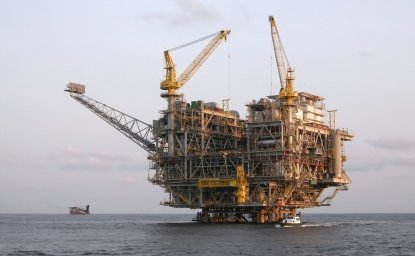No one could have predicted a worse-case scenario. Amidst the COVID-19 pandemic, the OPEC+ market stabilization agreement broke down. The virus collapsed oil demand, whilst the war over market share slashed oil prices by 80%. Forecasts see Brent around $12 dollars a barrel for 2020. The Mexican basket would go below $10db, providing a major blow to the federal budget and to PEMEX, despite hedge protections.
President López Obrador claims Mexico is prepared for the crisis: it has reserves, a revenue stabilization fund and a solid economic base. There is no sense of urgency. This perception might not be fully aligned with a reality that could severely undermine the economic and social stability of Mexico. The government has the opportunity to turn a looming tsunami into the justification to redefine its energy policy. The existing legal framework would allow the government to change course rapidly and take on the path of the fourth industrial revolution.
Since 2013, AMLO has berated the energy reform. Yet, as President he has vouched not to overturn it before 2021. Nonetheless, the government has scratched key features, such as oil contract bids and electricity auctions, amended by-laws and weakened regulators. The administration has been adamant at limiting spaces gained by the private sector, in an effort to strengthen State-Owned Companies by undercutting competition. Under the current scenario, neither PEMEX nor CFE would have the resources to ensure energy security in its traditional sense: the availability of energy at competitive prices.
Mexico, a consumer country with hydrocarbon resources, could steer the incoming crisis by taking on radical measures, such as redirecting investment, promoting private participation and fostering energy transition. Energy sovereignty, the keystone of the administration, would endure, embracing the development of Mexico’s renewable and conventional resources.
Given PEMEX’s hardship, the construction of the Dos Bocas refinery should be postponed or cancelled altogether. Investment should be redirected to the core business: exploration and production. Mid and downstream activities should be assessed, taking into account economic feasibility, whilst providing the private sector reassurances to continue investments in processing, transportation, storage and retail sale of refined products. A smaller but sound PEMEX would emerge, while maintaining energy security for the country.
The time is not ripe for oil bids, as IOC will be cutting spending. Investors’ confidence in Mexico is low, due to the cancellation of infrastructure projects and regulatory changes. Nonetheless, PEMEX should plan farm-outs for 2021, and the Secretariat of Energy and of Finance should begin drafting contracts aligned with international practices, to prepare a CNH-led bid.
Mexico should take advantage of the historically low natural gas prices, and boost imports to power generation and industrial plants. The pipelines are in place. The government needs to be aware of the golden opportunity of turning to natural gas at least through 2022. It would allow it to reduce electricity rates without subsidies, something that would be highly appreciated by society.
Electricity auctions need to be resumed, including schemes to finance the urgent construction of transmission lines. Mexico would benefit from private investment, job creation and the development of supply chains, if a sound local content requirement is set in place. Compliance with social impact assessment and indigenous consultation would provide the government with a positive narrative and communities with benefit.
A new narrative and an innovative strategy are possible with great benefits for the country and the administration. The challenge is to find a way to move from ideology to pragmatism.
Author

Research Affiliate, MIT; Non-Resident Fellow, Baker Institute

Mexico Institute
The Mexico Institute seeks to improve understanding, communication, and cooperation between Mexico and the United States by promoting original research, encouraging public discussion, and proposing policy options for enhancing the bilateral relationship. A binational Advisory Board, chaired by Luis Téllez and Earl Anthony Wayne, oversees the work of the Mexico Institute. Read more

Explore More
Browse Insights & Analysis
La esencia de la infraestructura global: perspectivas del líder de la industria Matt Harris

Debunking the Patient Capital Myth: The Reality of China’s Resource-Backed Lending Practices

